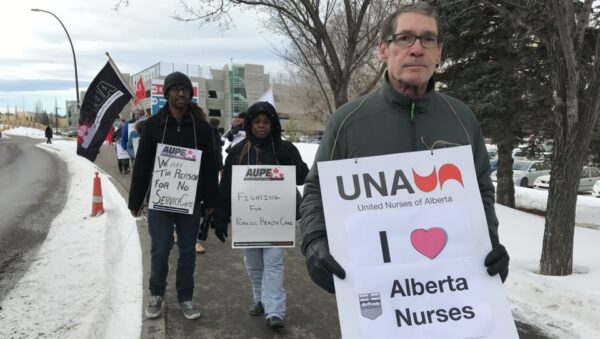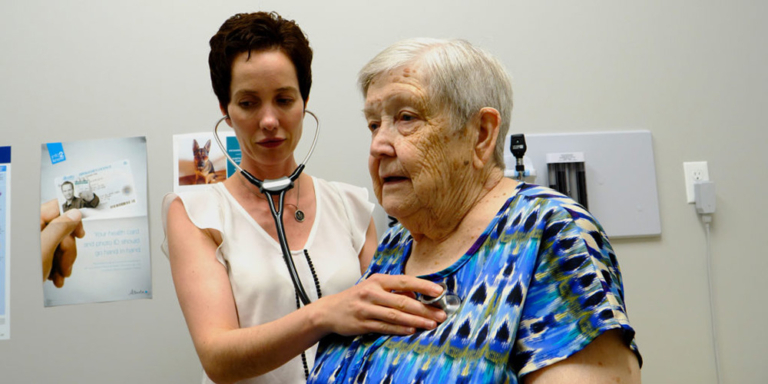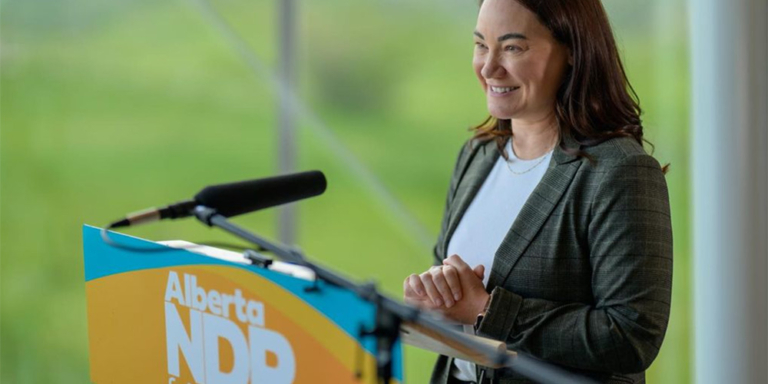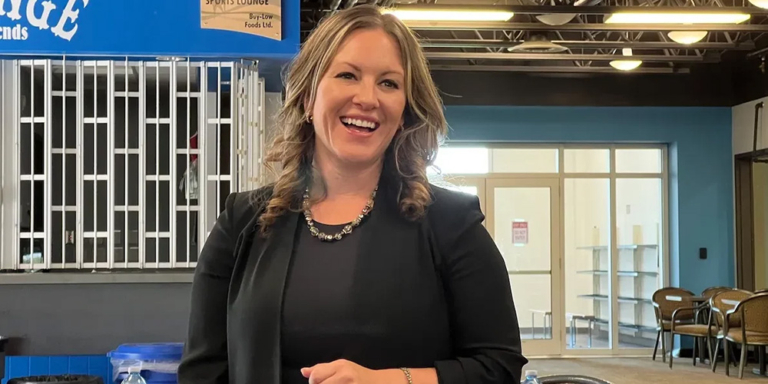According to Budget 2023, the UCP government plans to spend more. They’ve budgeted almost $25 billion on health operating expenses. But it isn’t all sunshine and rainbows.
Compared to last year, that’s an increase of over 4 percent, or $965 million. This may look great on paper, but the government is actually shorting us about $1.26 billion.
Let me explain. Between January 2022 and January 2023, Alberta’s Consumer Price Index (CPI) grew by 6.4 percent from 149.3 to 158.9.
What does this mean?


Simply put, the CPI measures the overall change in the cost of a set of staple products bought by consumers. In other words, Albertans paid 6.4 percent more for goods and services between January 2022 and January 2023.
Additionally, Alberta’s population increased by 135,190 people. That’s over a three percent bump. The number of people jumped from 4,466,124 at the end of 2021 to 4,601,314 a year later in 2022.
The thing is, Budget 2023 doesn’t account for inflation or population growth.
If it did, the government would have increased health operating expenses to $25.79 billion. The current budget won’t be enough to cover the increased demand and cost of services.
The problem is not new. Doctors in Alberta have been at odds with the government for years. Hospitals with too many patients and too few staff are just a few reasons why doctors choose to reduce their services or leave the province entirely.
Damage To Our Communities
According to the Alberta Medical Association, which represents about 14,000 doctors, 400 clinics in Alberta laid off support staff or considered closing in 2020.
In April 2021, Emma Herrington, a family physician in Airdrie at the time, left her practice to pursue a surgical role in BC.
In a Twitter thread, Herrington explained that she faced many barriers, including minimal relative income.
“While I would normally be inclined to troubleshoot these barriers, it felt like Alberta just wasn’t the place,” commented Herrington on Twitter.
Similarly, Luba Kazatchenko, a family doctor at La Vita Medical Centre in Airdrie, announced in an email that they would be closing their practice and moving out of province.
In Canmore, family doctor Cathryn Zapf was forced to move after the government announced changes to the funding structure for doctors in 2020.
“The cuts are going to be quite substantial, In the order of 30 to 40 percent…My juu here has been a struggle, and with those cuts, it’s just going to be impossible economically to carry on,” Zapf told CTV News.
For Zapf’s patients, this meant either finding a new doctor in Canmore or making the 104-kilometre trip to see Zapf at her new office in Calgary.
“…I am concerned about people who are elderly, who can find that journey difficult, or anyone who doesn’t have a car…I hope that those patients will be able to find another doctor in Canmore,” continued Zapf.
The List Goes On
These are just a few doctors who have either closed their practices or moved elsewhere. Other communities have also seen closures include Drayton Valley, Crowsnest Pass, and Grande Cache, among many others.
In January, NDP health critic David Shepherd referenced a letter from a Wetaskiwin family doctor. The doctor gave notice in the letter that he would be leaving the province.


He cited the unstable political climate within the government and Alberta Health as a reason for making the move east. The doctor’s decision profoundly impacted his patients, including Kathy Ward.
“The first thing I did was cry, because we’re at an age where we’re getting older,” Ward told the Edmonton Journal.
Ward says she can’t find anyone to take over her care in Wetaskiwin. Last Fall, the government signed a deal with the AMA, which includes increased physician compensation and an initial lump sum payment.
Steve Buick, the Health Minister’s press secretary, claims the government is making progress toward adding more family physicians.
Data from the College of Physicians and Surgeons of Alberta shows an increase of 254 net new physician registrants at the end of 2022, compared to 45 net new registrants the year before.
The data also shows the number of physicians leaving the province is decreasing. In 2022, 82 physicians left Alberta compared to 140 in 2021.
Weighing Their Options
Assuming this data is reliable, the net number of new physicians has almost returned to pre-pandemic levels. Our province’s retention of doctors also appears to be improving.
Sounds peachy, right? But Alberta is now seeing a record number of vacant medical residencies, especially in family medicine.
According to the Canadian Resident Matching Service (CaRMS), over one in ten of the province’s post-graduate doctor training spots went unfilled this year after a first round of matching.
CaRMS keeps track of all students graduating from Canada’s 17 medical schools and their preferred specialty and locations.
CaRMS then tries to match them with residency training programs, which is a period of training where aspiring doctors gain practical experience in a hospital or clinic.
Of the roughly 3,400 graduates each year, most get a match in the first round. But we are now seeing the highest first-round vacancy rate our province has seen in a decade.
At most universities in Western Canada, residencies in family medicine have few or no spots remaining after CaRMS matching is finished. But last year, Alberta had 17 vacant positions.
“To me, that just screams we’re failing…People aren’t interested in staying or coming to Alberta,” AMA president Dr. Fredrykka Rinaldi told CBC News.






